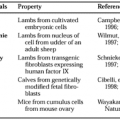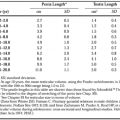OBESITY
Jules Hirsch
Lester B. Salans
Louis J. Aronne
Obesity continues to be a major clinical problem throughout the world. Treatment remains difficult and often unsuccessful; however, refinements in methods for measuring energy metabolism in humans and a rapid increase in the application of molecular genetics to human metabolism have combined to clarify a number of aspects of the pathogenesis of obesity. An exclusively psychosocial approach to the etiology of obesity is no longer tenable, as previous theories of pathogenesis have been enriched by new cellular and metabolic considerations.1 The new findings hold promise for better methods of treatment and prevention. This chapter is a selective review of past and recent findings of particular relevance to endocrinology.







